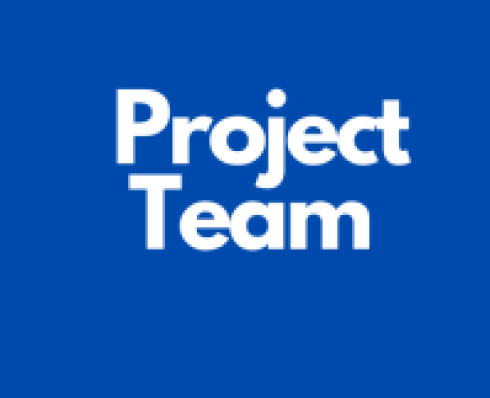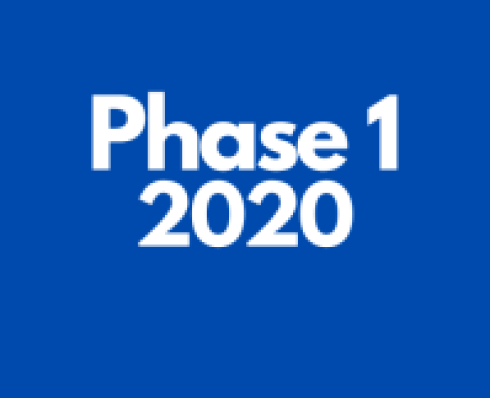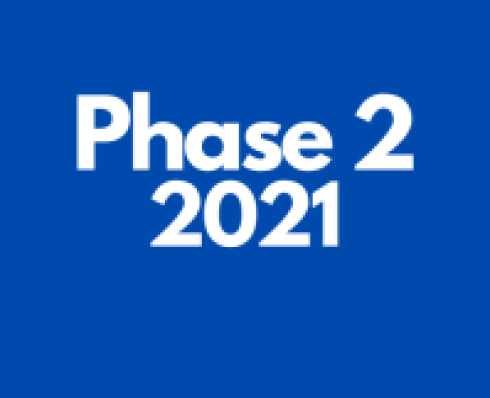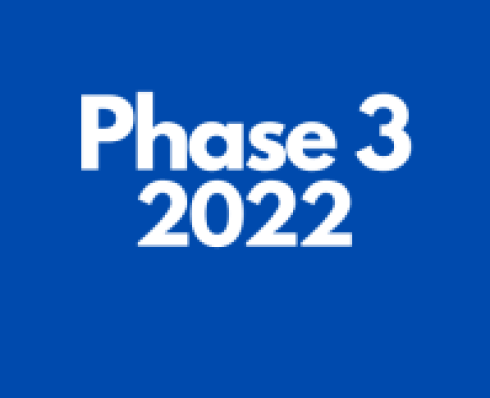
The NEX Project
In a rapidly ageing population new and efficient ways of providing health and social support to older adults are required that not only preserve independence but also maintain quality of life and safety. The overarching aim of the NEX project is to develop a technological solution that will enable older adults to remain living independently at home for as long as possible and facilitate caregivers to care for their family members or clients/patients in a non-intrusive manner.
This video will give you a better understanding about the NEX project. Click on the image to find out more

An overview of the NEX project
The NEX project is a multidisciplinary research collaboration involving researchers in the Centre for e-Integrated Care, the School of Psychology, the School of Health and Human Performance and Insight Centre for Data Analytics in Dublin City University working with leading Irish technology companies Davra and Danalto. This project is funded by an Enterprise Ireland Disruptive Technologies Innovation Fund (DTIF).
The NEX system is a combination of Internet of Things (IoT) technologies i.e. voice activated assistants, wearable devices, ambient sensors and smart plugs. These technologies collect data which can be used to identify patterns and changes in an individual's usual daily routine. Gradual changes in usual routine may be indicative of a person becoming unwell or that further support is required. The purpose of this project is to explore the development and usability of the NEX system. However, in a real life application, the NEX system data could be viewed in real time by older adults themselves, their family/caregivers or by a third party home care support service in order to support older adults to live independently.
The project is structured in three phases to achieve the overall project aim.
Phase 1 focused on identification of the user needs and requirements to inform the NEX system design.
Phase 2 investigated the technical performance and participant engagement of the NEX system with older adults.
Phase 3 of the project will commence in January 2022 and will incorporate the findings from phase 1 and 2 to inform the refined NEX system design. For this final phase of the project we are aiming to recruit 30 older adults aged 60 years and older being tested in the homes of participants for a 10-week period. Please get in touch with us via the contact us form or email nex@dcu.ie to find out more about the trial and how you can get involved. You can read more about what is involved in this trial in the plain language statement document below.
We recently presented an overview of the NEX project at the Engaging Ageing 2021 conference - The Future of Ageing and the Silver Economy. See our Research Manager, Dr Claire Timon, describe the project in the video below
An overview of the NEX Project

|
CeIC |
||
|
Principal Investigator (CeIC) |
||
|
Dr Pamela Hussey |
Co Investigator |
|
|
Prof Pamela Gallagher |
Co Investigator |
|
|
Dr Louise Hopper |
Co Investigator |
|
|
Dr Claire Timon |
Research Manager |
|
|
Research Fellow |
||
|
Dr Emma Heffernam |
Research Fellow |
|
|
INSIGHT |
||
|
Prof Kieran Moran |
Principal Investigator (INSIGHT) |
|
|
Prof Alan Smeaton |
Co Investigator |
|
|
Dr Hyowon Lee |
Co Investigator |
|
|
Shivani Bhat |
Research Assistant |
|
|
Research Assistant |
Our industry partners
DAVRA and Danalto are two private organisations that specialise in IoT (Internet of Things). DAVRA is responsible for integrating the NEX system data collection processes using their IoT platform. Danalto’s role on the project focuses on developing technologies using their positioning intelligence expertise. To hear more about the work follow them on twitter Davra Danalto

Phase 1 – User Needs & Requirements study
This co-design approach focused on partnering with end users to design the NEX system technology.
For this work we recruited older adults, family caregivers, healthcare professionals and home support workers to take part in the research.
Our original plan was to conduct face to face workshops with stakeholders to explore their needs and the possibilities that technology can bring to their lives. However as a result of Covid-19 we redesigned our research efforts to an online environment (online survey and Zoom workshops with stakeholders).
Overall, 426 stakeholders participated in face-to-face workshops, the online survey and the online workshops. Older adult stakeholders were the largest participant group (n=265, 62%) followed by family caregivers (n=83, 19%), health care professionals (n=51, 12%) and homecare support workers (n=27, 6%).
Key findings
- We discovered that the majority of older adult respondents (86%, n=202) were willing to use technology to assist them to live independently in the future.
- Technologies that were deemed most useful included those that could provide an emergency response, support home security and assist with communication.
- From the older adult’s perspective, the key advantages to using technology included, increased independence and increased safety while key disadvantages included the financial investment required and concerns about data privacy.
- For other stakeholders, the analysis highlighted that key areas where technology could assist older adults to live independently were: remote monitoring of family members (family caregivers), communication with clients (healthcare professionals) and falls support (home support workers).
The DCU team from the Centre for eIntegrated Care and INSIGHT worked closely with the industry partners to map these user needs to appropriate technology solutions - The NEX system.

Phase 2 – the Friendly Trial
The prototype of the NEX system was developed in response from the user needs and requirements study (Phase 1). The Friendly Trial focused on investigating the technical performance and participant engagement of the proposed “NEX system”.
To achieve this, we recruited 7 older adults (aged 60 years and older) to install the NEX system in their home for a duration of 10 weeks.
Covid-19 restrictions impacted our original study design which involved technicians and researchers visiting participants home for installation and training. To overcome the restrictions, the Friendly Trial was redesigned to involve self-installation of the NEX system by the participants themselves with remote support.
Key findings
- The NEX system design has allowed for the collection of rich and extensive health and activity data from users’ home environments.
- There are aspects of the current design that need to be improved upon to enhance adoption and usability i.e. the complexity of the self-install process, battery life of sensors and user acceptability of the wearable device used for the alert testing.
- We found that participants were open to adopting the NEX system if it means that it supports their ability to be able to live independently at home for longer, thereby postponing potential entry to residential care.
- Participants review of their NEX system data highlighted that the user interface has clear potential to be a powerful mechanism of action which will impact on user acceptance and adoption of NEX. So, from a design perspective, we need to carefully consider how we present the data to users going forward.

Phase 3 - Action Research Cycle (ARC)
For the final phase of the overall NEX project, we have taken on board the findings from the Friendly Trial to refine the NEX system and we now aim to trial this at a larger scale in the homes of older adults.
A key objective of this research study focuses on the use of the NEX system to collect data for the identification of Activities of Daily Living (ADLs) and the identification of longer term patterns of routine behaviour (periodicity)
Activities of daily living (ADLs) are essential and routine tasks that most healthy individuals can perform without assistance. Therefore, the ability to detect whether older adults are routinely completing these activities is an important feature of the system.
For this trial we are aiming to recruit 30 older adults from Dublin and surrounding areas aged 60 years and older to test the NEX system in their home environment for a 10-week period.
The majority of study contacts will still take place over Zoom, however for this study the system will be installed and removed from participant’s homes by a NEX project technician.

Publications
January 2023
SMEATON, A. F. & HU, F. 2023. Periodicity Intensity Reveals Insights into Time Series Data: Three Use Cases. Algorithms, 16, 119.
https://doi.org/10.3390/a16020119
December 2022
KILCULLEN, S., HEFFERNAN E., HUSSEY P., LEE H., MORAN K., MURPHY C., SMEATON A., TIMON C., GALLAGHER P. & HOPPER L. 2022. A Theoretical Domains Framework (TDF) approach to the qualitative analysis of older adults’ intentions to adopt assistive smart home technology. Gerontechnology : international journal on the fundamental aspects of technology to serve the ageing society, 21: 1.
https://journal.gerontechnology.org/currentIssueContent.aspx?aid=3328
November 2022: Online survey of User Needs and Requirements. Irish Gerontological Society 69th Annual Conference. 3-4 Nov 2022.
Murphy C, Timon C, Heffernan E, Hopper L, Gallagher P, Hussey P. (2022) Technology to support independent living at home:
The link to the published abstract is
https://academic.oup.com/ageing/issue/51/Supplement_3
May 2022: Research article published in Journal of Medical Internet Research
Timon CM, Heffernan E, Kilcullen SM, Lee H, Hopper L, Quinn J, McDonald D, Gallagher P, Smeaton AF, Moran K, Hussey P, Murphy C (2022) Development of an Internet of Things Technology Platform (the NEX System) to Support Older Adults to Live Independently: Protocol for a Development and Usability Study JMIR Res Protoc 2022;11(5):e35277
https://www.researchprotocols.org/2022/5/e35277/authors
NEX in the news
June 2022 Title : Insight Communities: NEX Project enabling independent living for older adults https://www.insight-centre.org/insight-communities-nex-project-enabling-independent-living-for-older-adults/
April 2022 Title: DCU trials independent living tech in Dublin homes
https://www.techcentral.ie/dcu-trials-independent-living-tech-in-dublin-homes/
February 2022 Title: Older adults are invited to trial new technologies in their homes to help support independent living https://irishtechnews.ie/older-adults-trial-to-support-independent-living/
February 2022 Title: Seniors invited to trial independent living tech in their homes. https://www.techcentral.ie/older-adults-invited-to-trial-independent-living-tech-in-their-homes/
Presentations:
October 2022: Title: Citizen participation in the design of technology to support independent living: Lessons learned on the NEX project. Dr Catriona Murphy presentation at the Centre for Engaged Research DCU online seminar
Title: Internet of Things Sensors in the Homes of Older Adults to Detect Activities of Daily living at Scale. Timon C, Hussey P, Lee H, Murphy C, Vardan Rai H, Smeaton AF. Poster presentation at the Sustainable Digital Health Innovation conference, Galway 14/10/22
July 2022: Timon C, Keogh O, Heffernan E, Lee H, Hussey P, Murphy C, Smeaton A.F. (2022) Nutrition Society Summer Conference Food & Nutrition Pathways to a Sustainable future The use of Internet of Things (IoT) technology for identification of eating events in an older adult population : A proof of concept study Sheffield Hallam University, UK, 12/07/2022- 15/07/2022
May 2022: Let's drop the jargon: A Symposium on Digitalisation in Healthcare, interoperability and standards - The Role of Interoperability In Advancing Integrated Care - Slaintecare
May 2022: National Nursing & Midwifery Digital Healthcare Conference - Better Together For Digital Healthcare
Presentation by Dr Pamela Hussey and Dr Catriona Murphy: Interoperability for Information Enabled Care
April 2022: Dublin City Learning Festival: https://www.dcu.ie/agefriendly/news/2022/apr/nex-project
Presentation by Dr Catriona Murphy: The NEX project “Show Home”: technology to support independent living in older adults
November 2021: Engaging Ageing '21 Conference - The Future of Ageing and the Silver Economy Age Friendly University Conference.
Presentation by Dr Claire Timon: An overview of the NEX project – using IoT technology to support older adults to live independently.
November 2019: Health Informatics Society of Ireland (HISI) Conference. Presentation by Dr Catriona Murphy: Disrupting home care for older adults at risk of falling: The NEX project
